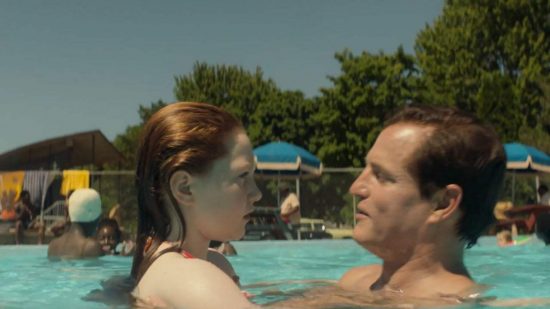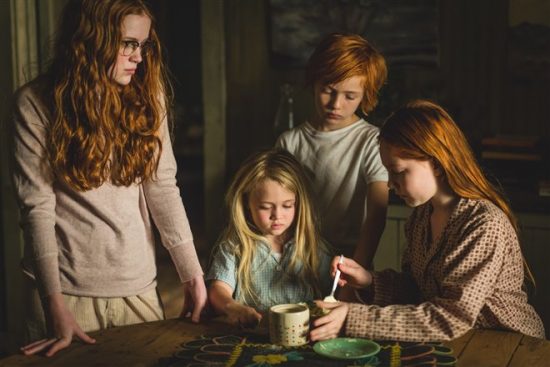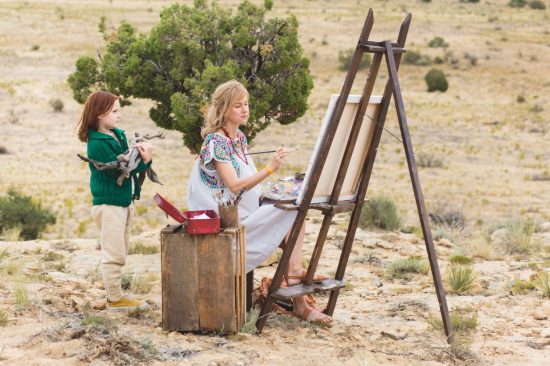Review: The Glass Castle
Biopics don’t always make it to screen, especially if producers consider a plot to be far-fetched. But now that ‘formula’ can be taught and budget no longer equals success, audiences demand originality or their attention will revert back to the glowing Mecca of a smaller screen.
Enter, The Glass Castle, an original work of unvarnished truth. Based on writer Jeanette Walls’ memoir, the very visual trials and tribulations of this writer’s life were destined for the big screen.
Despite marketing focussing on the prevailing nature of familial love, The Glass Castle isn’t the easiest of watches, being about how systemic familial abuse weaves its ways through the generations. Neither does it have a neat pay-off, just like real life, however The Glass Castle works hard to balance pain with joy.
Brie Larson stars at Walls, the second child of four, who begins the movie in 1989, living a nice, safe and financially stable life as a New York Magazine columnist. The action cuts back twenty years to focus on how Jeanette and her siblings survived childhood with their father Rex (Woody Harrelson) and mother Rose Mary (Naomi Watts). Rex and Rose opted out of the tax-paying, law-abiding citizen model to instead rely solely on moxie to support their dreams – Rose’s of becoming a successful artist, Rex’s of building a grand family home made of glass.
Moving back and forth across time, the siblings remain close, but it becomes clear that Rex and Rose were not made to be parents, going from naive dreamers to dumpster divers, and Jeanette feels ashamed of her upbringing in front of her fiance and his business associates.
As Jeanette decides whether to tell her family of her engagement, the viewer learns of the events that led to such shame.
It quickly becomes clear that the real stars of The Glass Castle are Rex and Rose. Harrelson and Watts are required to sympathetically represent utter monsters who would have been jailed had the film’s events happened in a large city and not the wilds of West Virginia.
Reuniting Larson with director Destin Daniel Cretton (their second project following the celebrated Short Term 12) demonstrates that Larson is good at crying on cue, but most of the heavy lifting in The Glass Castle comes from Ella Anderson as the younger Jeanette. Anderson’s scenes with Harrelson are poignant due to Cretton’s masterful portrayal of their complex relationship. Harrelson is as good as ever as Rex, demonstrating how easy it is to fall from lofty ideals to abusive behaviours while inside a bottle of bourbon. Watts is also fun to watch, a study in the parent as perpetual child, and it is a shame that the film never touches on how she became this unsavoury willow-the-wisp.
If there are flaws in The Glass Castle they do not come from the players. There is sometimes an air of untruth in a story told from a child’s perspective, and Jeanette is given too much credence as playing a pivotal role in events, simply because they are viewed from her perspective. And what begins as a coming of age fable descends into a worthy melodrama with an ending that would make a nun scoff. Following two hours’ meticulous depiction of Jeanette’s distressing childhood, there is no discussion of committing the parents to an institution and barely any hint of psychological damage to any of their children. In fact, the direction tries to instil a Pavlovian reaction of forgiveness to the word ‘family’. Cinema may not need to act as judge, juror and executioner, but Cretton is in danger of deifying Rex and Rose’s highly watchable villainy.
A well-played take on real events, The Glass Castle is an over-long visual aid to a superior book. Go and see it for the outstanding performances, but perhaps not for a lesson in good parenting.












